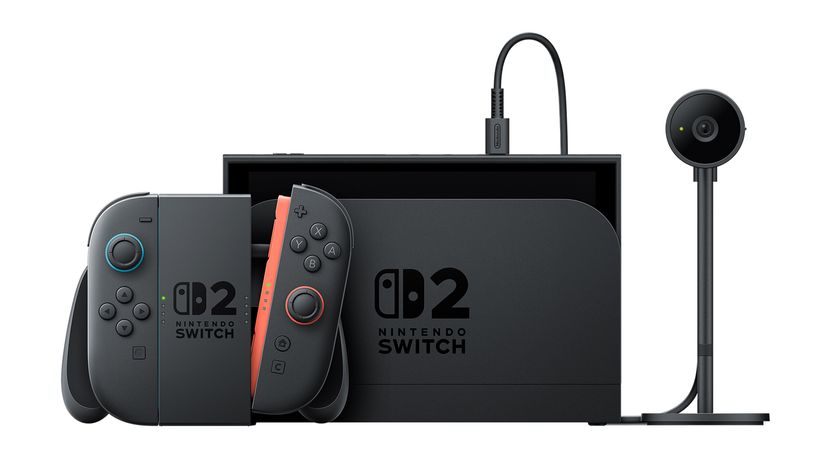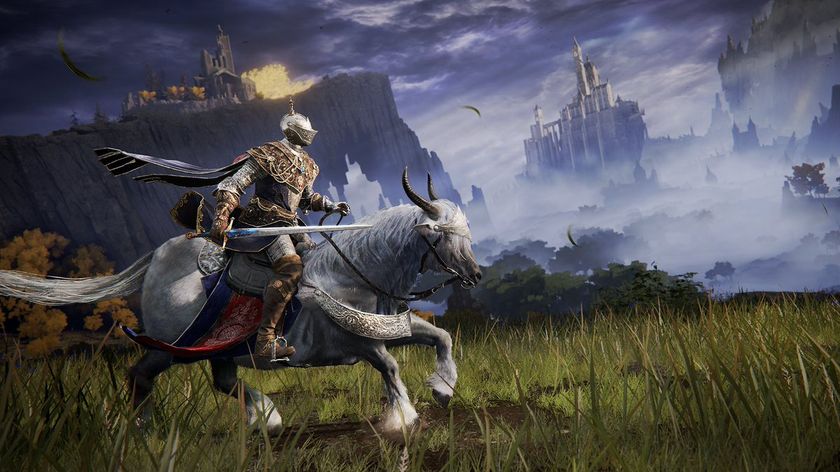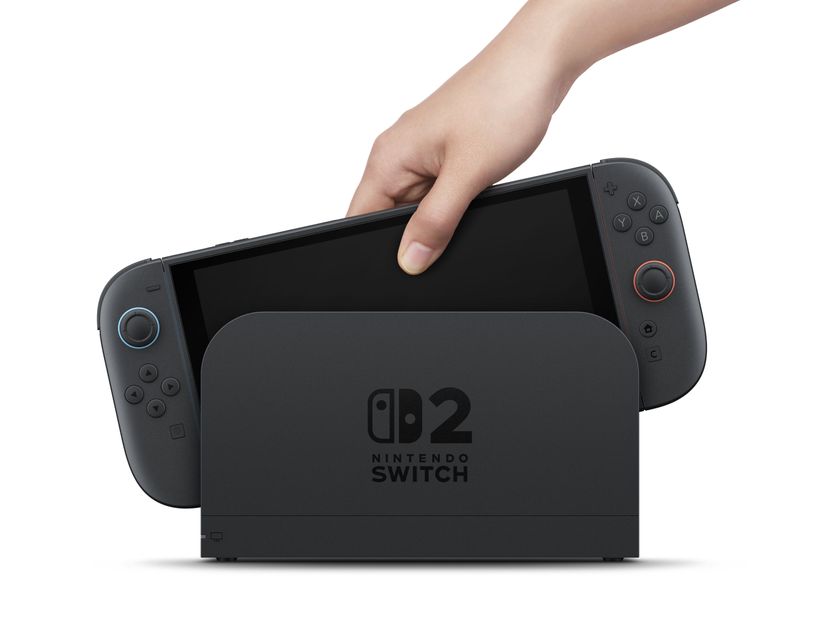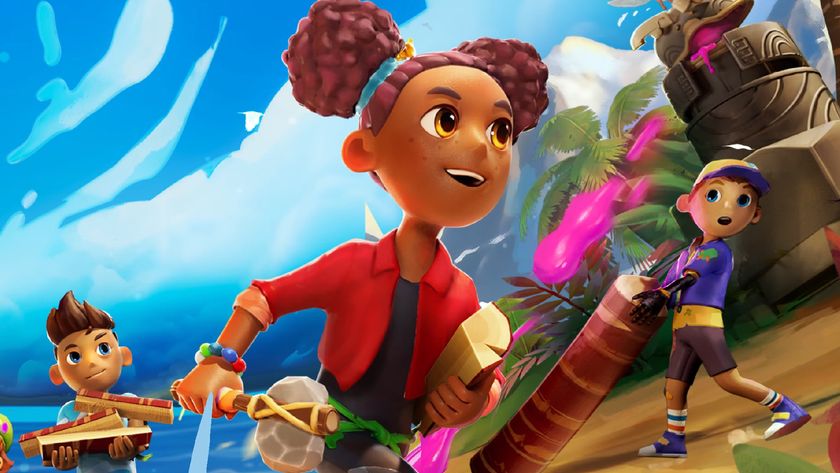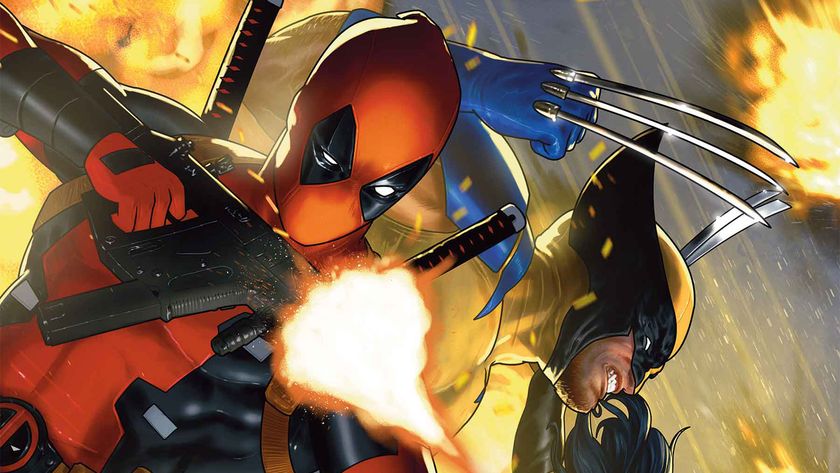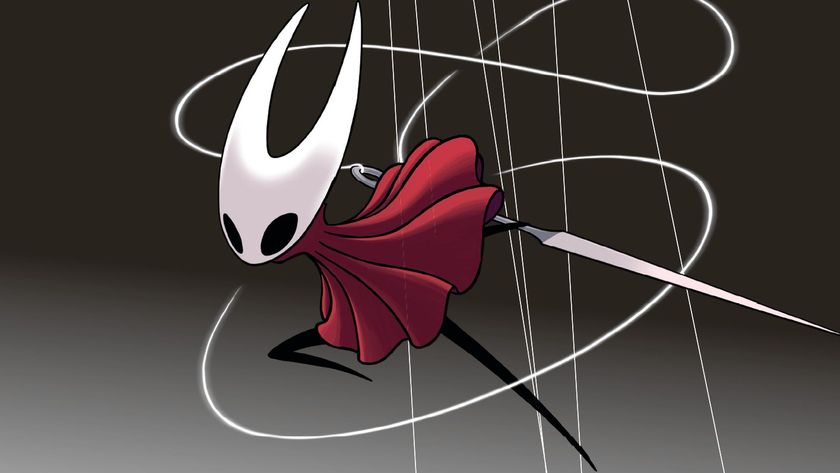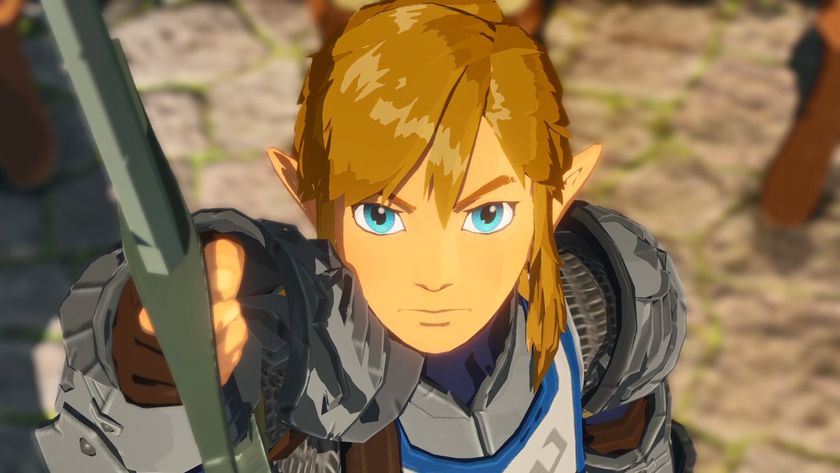If developers don't like the term JRPG, what do we use instead?
The JRPG debate may already be too complicated to have an answer
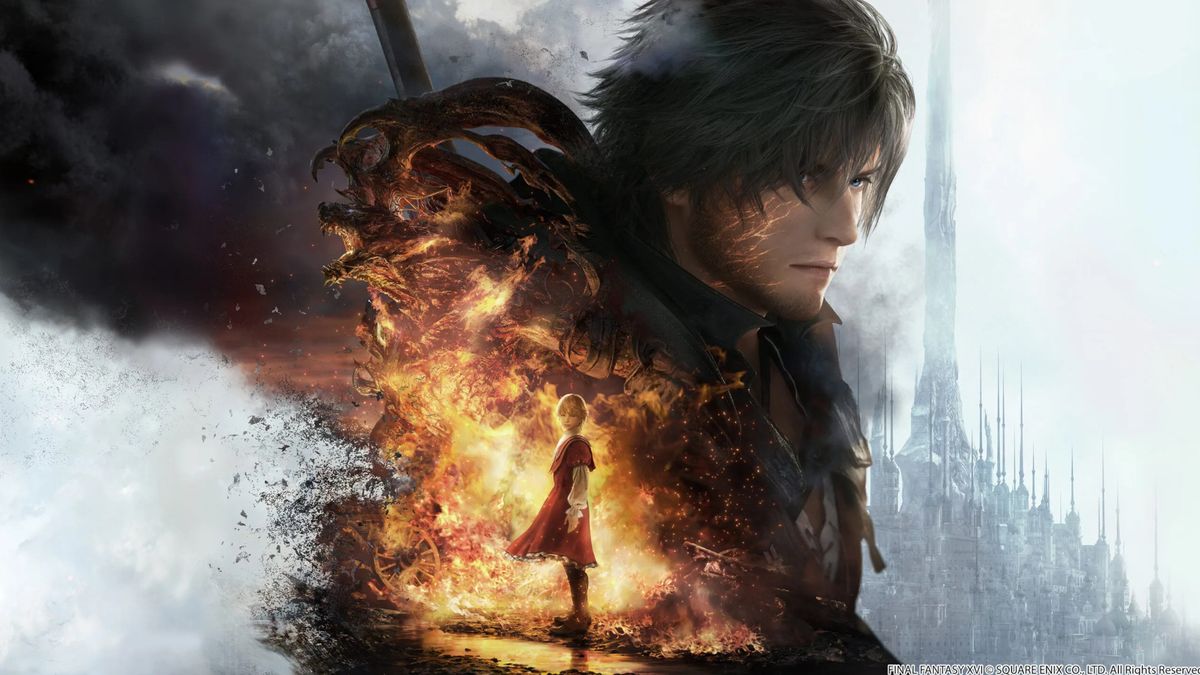
Earlier this week, Final Fantasy 16 director and producer Naoki Yoshida expressed his disdain for the genre moniker 'JRPG,' calling it "a discriminatory term." Genre descriptors tend to be catalysts for endless semantic discourse at the best of times, and seeing one of the most notable creators in one of gaming's most beloved lineages trashing the term many of us use to describe it, I've got to wonder earnestly - what are we going to call these games instead?
You probably know by now that the term "role-playing game" as we use it today comes out of Dungeons & Dragons. (D&D didn't spring from nowhere, either, but that's a whole different can of worms.) There was an unsurprising crossover between tabletop gaming nerds and early computer programmers, so many of the earliest video games took direct inspiration from D&D. These games tended to feature a lot of the things you associate with D&D, like Tolkienesque fantasy worlds, a customizable party of characters with their own classes, and leveling systems that saw those characters getting more powerful over time.
Those early RPGs, in particular the Ultima and Wizardry series, are why the genre exists today. It's also why development of this style of game split. In the Americas and Europe, these games continued to inspire increasingly complex computer RPGs that went heavy on customization and player expression. In Japan, these games inspired Dragon Quest, and that title's style of simplified, console-friendly gameplay and memorable anime-influenced characters - not to mention its wild success - set the lineage of Japanese RPGs on a very different path.
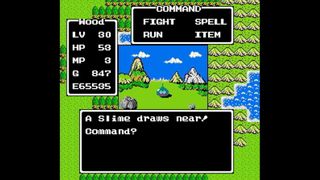
But that's not the whole story. Let's look at Yoshida's comment in full: "This is going to depend on who you ask but there was a time when this term first appeared 15 years ago, and for us as developers the first time we heard it, it was like a discriminatory term. As though we were being made fun of for creating these games, and so for some developers the term JRPG can be something that will maybe trigger bad feelings because of what it was in the past."
Why is Yoshida saying "15 years ago" when we're talking about games that are, in some cases, 40 years old? Well, 15 years ago puts us around 2008, squarely in the middle of the Xbox 360 and PS3 generation. During that time, there was a pretty pervasive sentiment among Western gamers that Japanese titles just weren't as good as they used to be. In an era when popular series like Final Fantasy seemed to be in decline, Nintendo seemed to be ditching its traditional designs in favor of gimmicky motion controls, and companies like Capcom struggled to reboot their storied franchises in ways that had appeal around the world.
It might be difficult to fathom today, in a world where one of the biggest stars in movies is loudly professing anime's influence on his films, but there was also a feeling back then that Japanese stuff just wasn't… cool. The pervading sentiment dictated that anime was at best for nerds and at worst for perverts. Japanese games were at best full of colorful, oh-so-wacky worlds, and at worst they were incomprehensible products of a foreign culture. You'd hear games dismissed with alarming regularity over being "too Japanese."
When this conversation comes up, people inevitably start talking about Phil Fish. Though he's long since left the industry, Fish is best known for his work on the beloved indie hit Fez, but he's also known for a Q&A session at the 2012 Game Developers Conference, where he told a Japanese developer that Japanese games "just suck." In the resulting discourse-storm, Fish gave a not-really defense of himself on Twitter by saying "So I guess I'm some kind of big racist now. I'm sorry, Japanese guy! I was a bit rough, but your country's games are fucking terrible nowadays."
Sign up to the 12DOVE Newsletter
Weekly digests, tales from the communities you love, and more
Fish's comments aren't really relevant in 2023 - it's arguable whether they were relevant in 2012, either - but reading between the lines of Yoshida's comment it seems this is the context where he started to come into contact with terms like JRPG. I know I was saying "JRPG" in the early 2000s as an easy shorthand to talk about games like Final Fantasy, but why would a Japanese developer bother to put the J in there? If you're Japanese, a Japanese RPG is just an RPG. It's easy to see why a developer in that context would bristle at the idea that their games were somehow set apart from what the rest of the world was creating.
So what do we call JRPGs, then? Literally, that term means "RPGs developed in Japan" - but does that distinction even matter anymore? Once upon a time, you might argue that "JRPG" indicated a console-focused experience that emphasized memorable characters and worlds over the fiddly complexity of PC RPGs. Now, that same definition would make the likes of Mass Effect and the latter Dragon Age games JRPGs.
The distinction gets murkier the deeper you look for examples. The Etrian Odyssey series hews more closely to the gameplay of Wizardry and Ultima than most RPGs developed in the West, but it's lumped in under the JRPG umbrella whether for its anime aesthetic or its country of origin. Delving into something even more obscure, Level-5's hidden 3DS gem Crimson Shroud hews all the way back to the experience of playing D&D around a tabletop. Which lineage are these games truly drawing from?

This is why it's all so difficult to unpack. The term "JRPG" is caught up in the earliest days of game development, the way a style of design evolved in different markets and cultures, and the way those styles clashed as the gaming industry became more global. It's also caught up in a history of knee-jerk criticism of Japanese games that you could generously call insulting - or less generously, xenophobic. Depending on who's using the term, JRPG could mean "something like those Final Fantasy games I used to love" or "something like that insufferable anime bullshit I bounced off of." It's far too broad to actually mean anything.
So what do we use instead? Final Fantasy 16, the game that (re)started all this discourse, draws from its predecessors, sure, but it also seems to pull just as liberally from action games like Devil May Cry and dark western fantasy stories like Game of Thrones. Heck, it's even got Shenmue's QTEs. It lets you wander around a 3D environment, like Super Mario 64, and play with a controller, like an Atari 2600 game. I hear it's even got cutscenes, like in the NES Ninja Gaiden. I think the only way we might be able to get out from under all this is if we just call FF16 a "game." Certainly no gamer has ever questioned what it means for a game to be a "game" before.
The reality is that games are too big and broad for us to concretely define these sorts of terms. I've spent a lot of this article pretending the RPG lineage cleanly divides between JRPGs and CRPGs, but that's really not the case. Just look at another massively influential game to come out of the early PC RPG experiments: Rogue. Imitators of Rogue became their own genre called roguelikes, and decades later as indie developers began to revisit this game's concepts, we all got to start arguing over what constitutes a roguelike, a roguelite, or a game with rogue-inspired elements. That argument has been ongoing for years, and even the ostentatiously-named Berlin Interpretation did not put a stop to it.
Now, we tend to talk more about design trends rather than actual genres. Descriptors like roguelikes, Soulslikes, and Metroidvanias all refer to styles of design rather than concrete categories of games. You know what other genre term has come to identify a trend rather than a group of games? RPG. It's tough to identify a modern game that doesn't pull in some kind of RPG element, which can mean anything from a leveling system and experience points to a branching story and dialog choices. I think I know an RPG when I see it, but that name means something different every time I use it.
Language evolves, and that includes the words we use to describe game genres. As much as I'd love to give you a concrete answer for what box to put Final Fantasy 16 in, I don't have one, and I suspect that any such box is going to be wildly misshapen by the time we actually manage to shove the game in there. The ideas that brought us whatever games we might've loved as "JRPGs" are still swimming through the ether of the industry. We don't have to fashion them into a container that can only hold back this continued evolution - especially when the developers behind these very games are so frustrated by the decades of baggage that've come with the term JRPG.
Our Final Fantasy 16 preview might not answer what a JRPG is, but it will explain what some of the best developers in Japan have been up to.

Dustin Bailey joined the GamesRadar team as a Staff Writer in May 2022, and is currently based in Missouri. He's been covering games (with occasional dalliances in the worlds of anime and pro wrestling) since 2015, first as a freelancer, then as a news writer at PCGamesN for nearly five years. His love for games was sparked somewhere between Metal Gear Solid 2 and Knights of the Old Republic, and these days you can usually find him splitting his entertainment time between retro gaming, the latest big action-adventure title, or a long haul in American Truck Simulator.
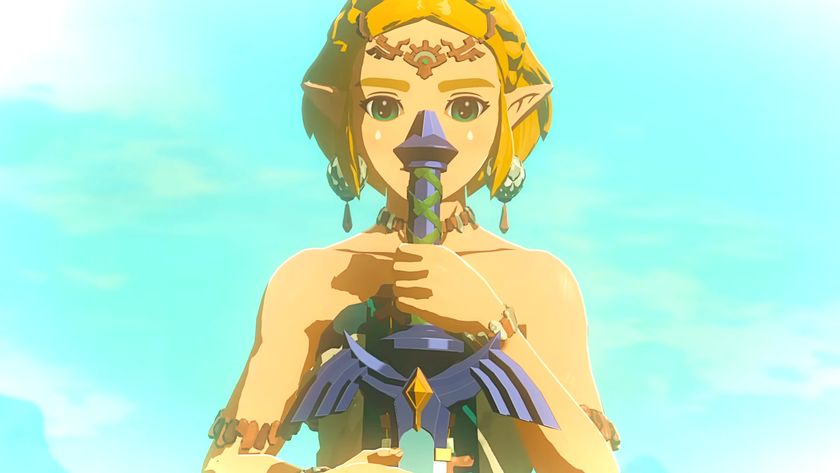
Final Fantasy 7 Remake's Aerith actor is throwing her hat into the ring for the Legend of Zelda movie: "I just wanna audition for Zelda so bad"
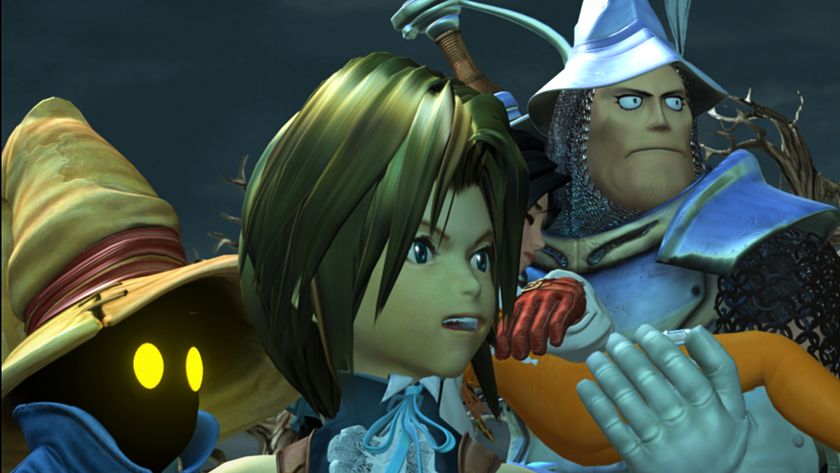
Final Fantasy 9 gets website celebrating 25th anniversary with hints of "various projects," leaving fans of the JRPG hopeful for the long-rumored remake

